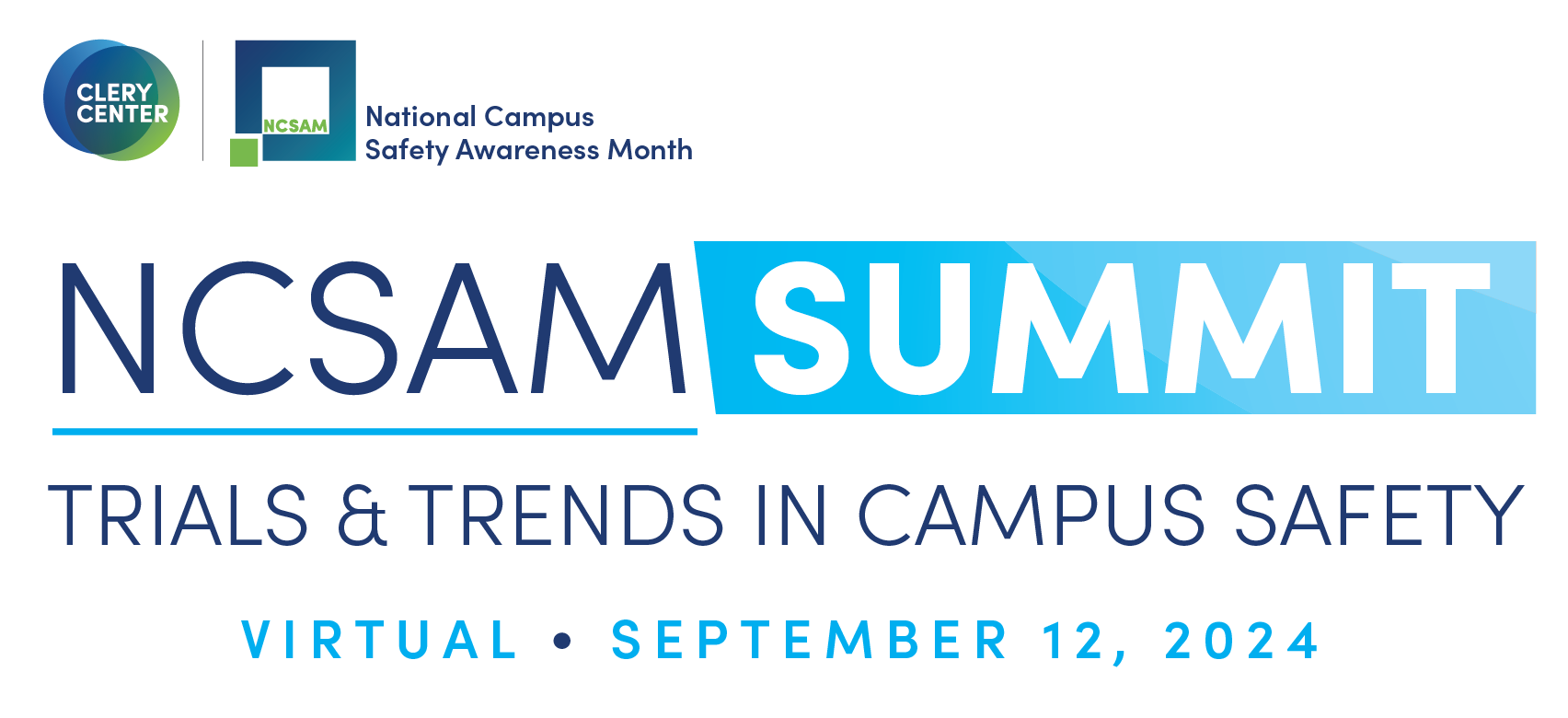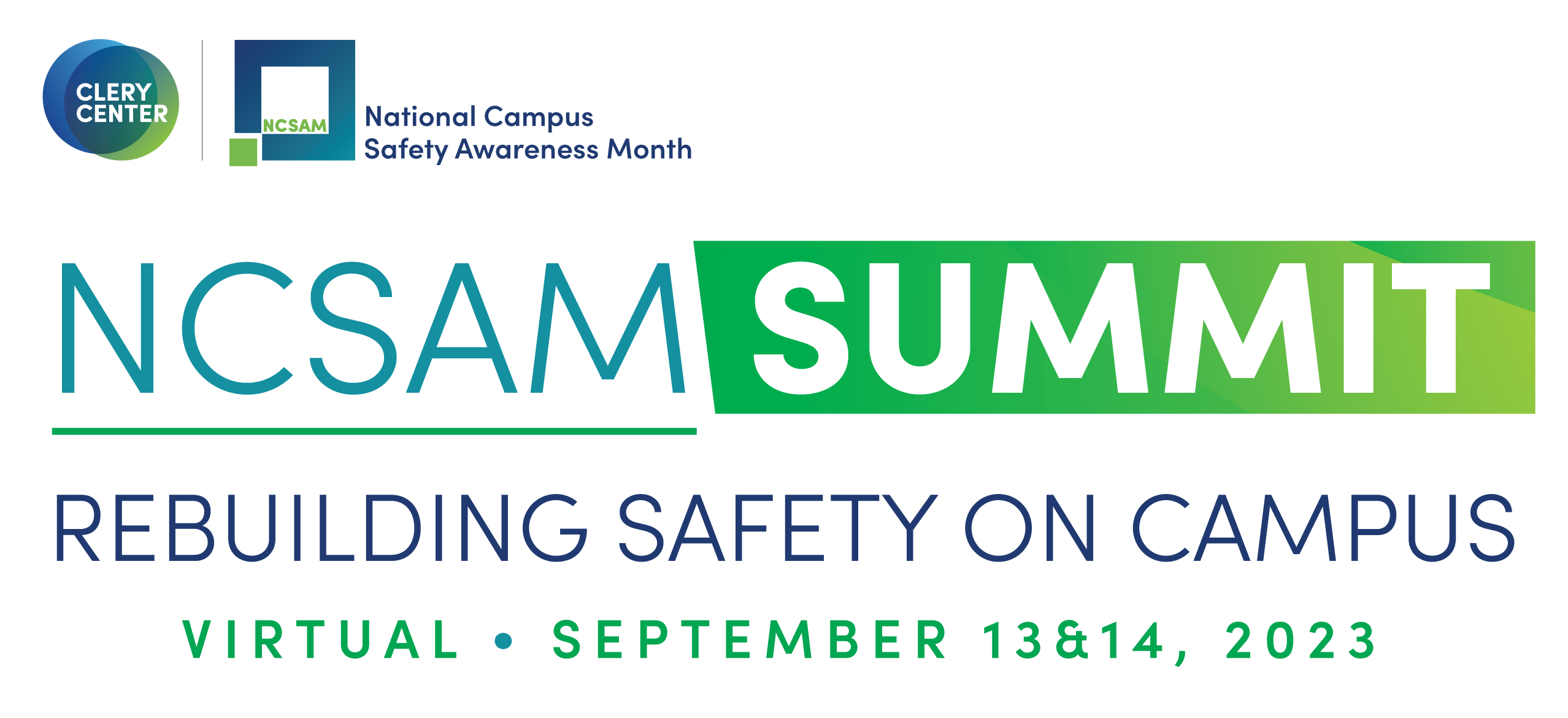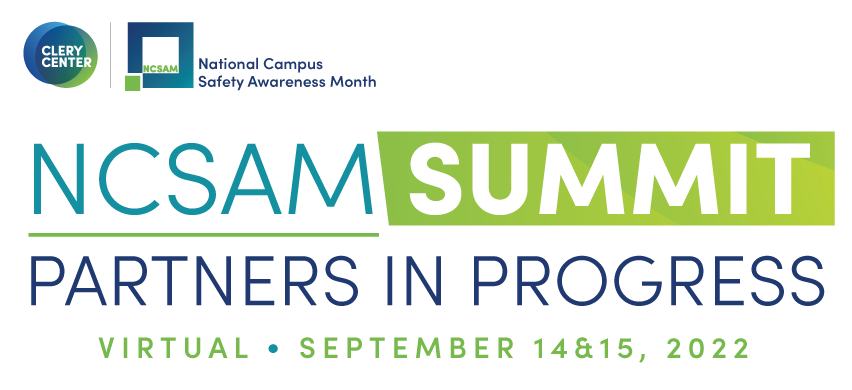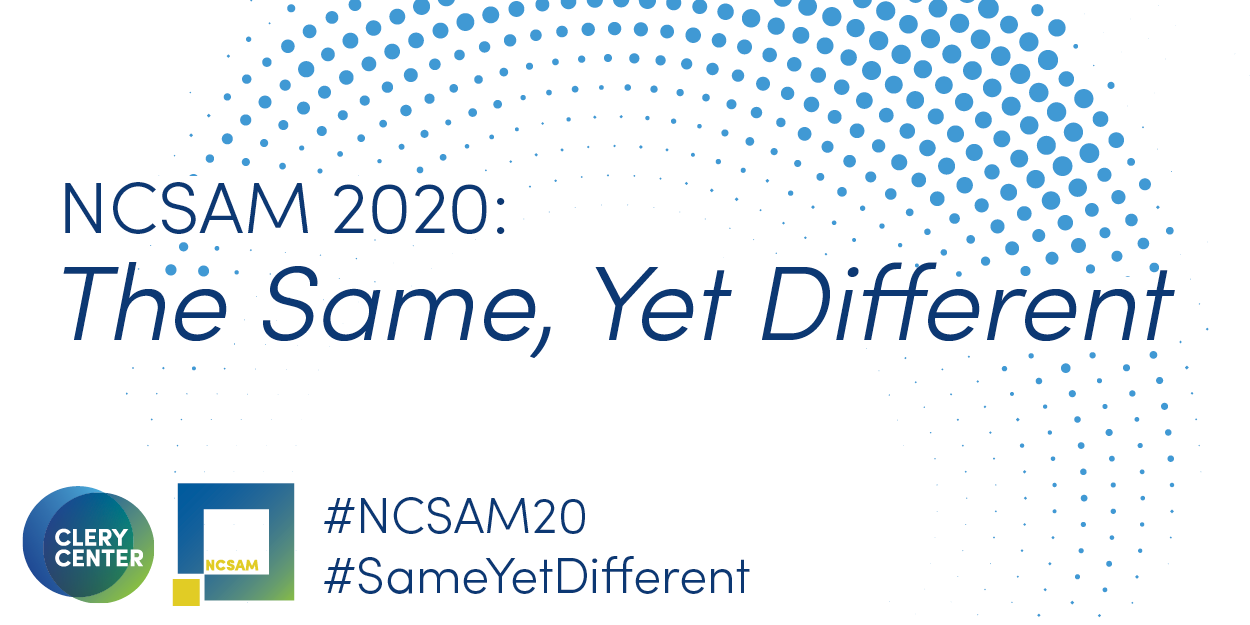NCSAM 2022 Virtual Summit: Partners in Progress
Clery Center’s 2022 NCSAM Summit explored how progress is best made when collaboration with partners takes place. Whether within your own institution or working with external community organizations, partnership enables collaboration, leveraging of skills, and idea generation to collectively make change happen. 2022’s virtual summit offered insight and experience through one-on-one interviews, panels, and roundtable conversations as well as networking opportunities for attendees to begin cultivating their own partnerships. View the full 2022 agenda here.
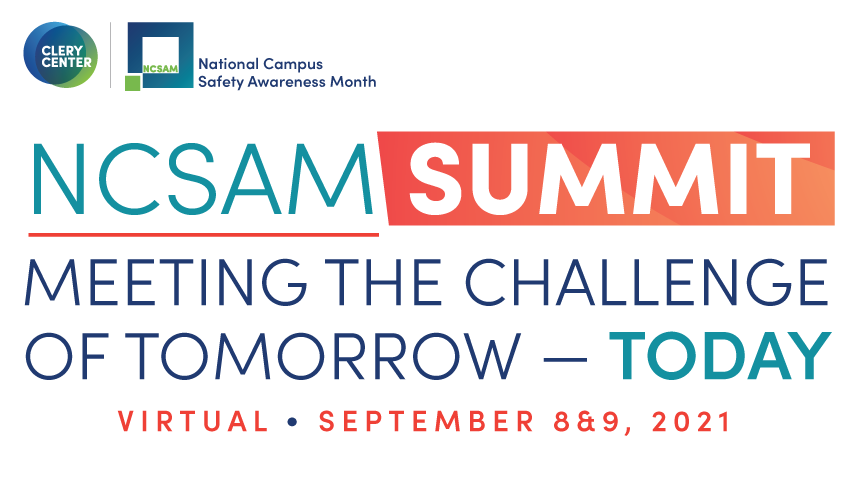
NCSAM 2021 Virtual Summit: Meeting the Challenge of Tomorrow – Today
Clery Center’s 2021 NCSAM Summit brought together campus safety practitioners and higher education leaders from around the country to explore relevant, actionable, and scalable strategies to meet tomorrow’s most pressing campus safety challenges today. Our two-day virtual micro-summit offered unique perspective panels, cutting-edge case study analyses, and networking opportunities for individuals looking to take their professional development to the next level. View the full 2021 agenda here.
NCSAM 2020: The Same, Yet Different
In the wake of COVID-19 and an advancing civil rights movement, institutions around the nation were reaffirming their commitments to campus safety. As communities wrestled with a new normal, the Clery Act remained the same— a call to action. In September 2020, Clery Center highlighted how the Clery Act can serve as a guidepost, centering conversations around personal and campus safety following the historic events of 2020. Whether examining the increase in reports of intimate partner violence during lockdown, or the uptick in hate crimes and bias-related incidents, the Clery Act can serve as the barometer to examine campus climate. There is little doubt that 2020 will go down in history. Campus safety professionals nationwide joined us to explore the Clery Act’s continued relevance as we entered a fall semester that was the same, yet very different.
NCSAM 2020 Resources:
- A Call to Action: Resources to Consider
- Guide to Creating a Written Notification
- Viewing the Clery Act Through an Intersectional Lens
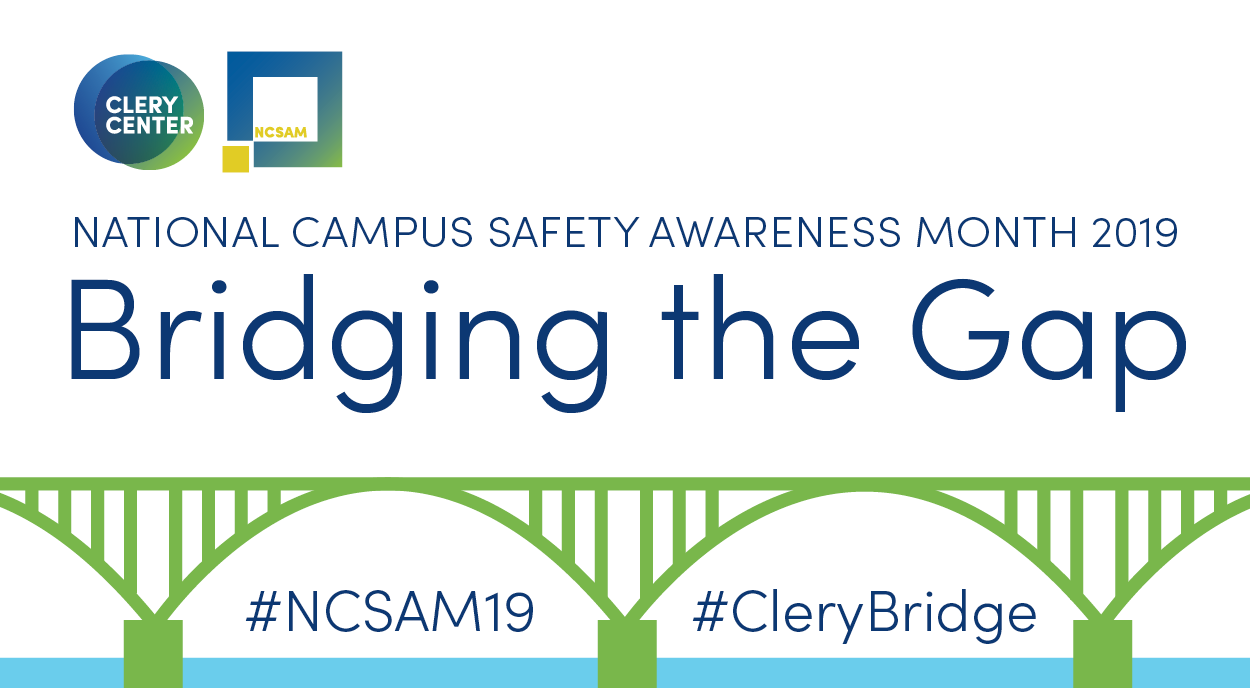
NCSAM 2019: Bridging the Gap
Understanding what you are required to do or recommended to do is different from being able to actually do it. When it comes to campus safety prevention and response, multiple voices and perspectives sharing what must or should be done can confuse what is actually required or how to best implement those requirements. Similarly, it can be difficult to create buy-in at an institution for support in campus safety work when questions about requirements or best practices are left unresolved or unanswered.
During National Campus Safety Awareness Month 2019 Clery Center provided multiple professional development opportunities through webinars, resources, and tools that clarify areas of campus safety prevention and response work that are commonly confused or misunderstood. From sharing strategies about dating violence prevention to distinguishing the differences between timely warnings and emergency notification, to explaining what a biennial review actually is, this NCSAM we focused on supplying answers that provide greater understanding of Clery Act requirements and strategies for implementing those requirements as well as other aspects of campus safety. The key to effectively addressing campus safety is to bridge the gap between theory or requirements and practice. Use 2019’s resources and strategies to enhance your own understanding of current campus safety best practices and improve your own prevention and response procedures.
NCSAM 2019 Resources:
- Composing Your ASR
- Classifying Student Trips Within Clery Geography
- Campus Safety Outreach Starter Plan
- Timely Warnings & Emergency Notifications: Separate and Distinct Requirements
NCSAM 2019 Webinars:
NCSAM Content Usage Guidelines
As a national nonprofit, Clery Center strives to make many of its resources and programs free of cost and available to the public. If you would like to use or share any of these resources, please read our usage guidelines.


